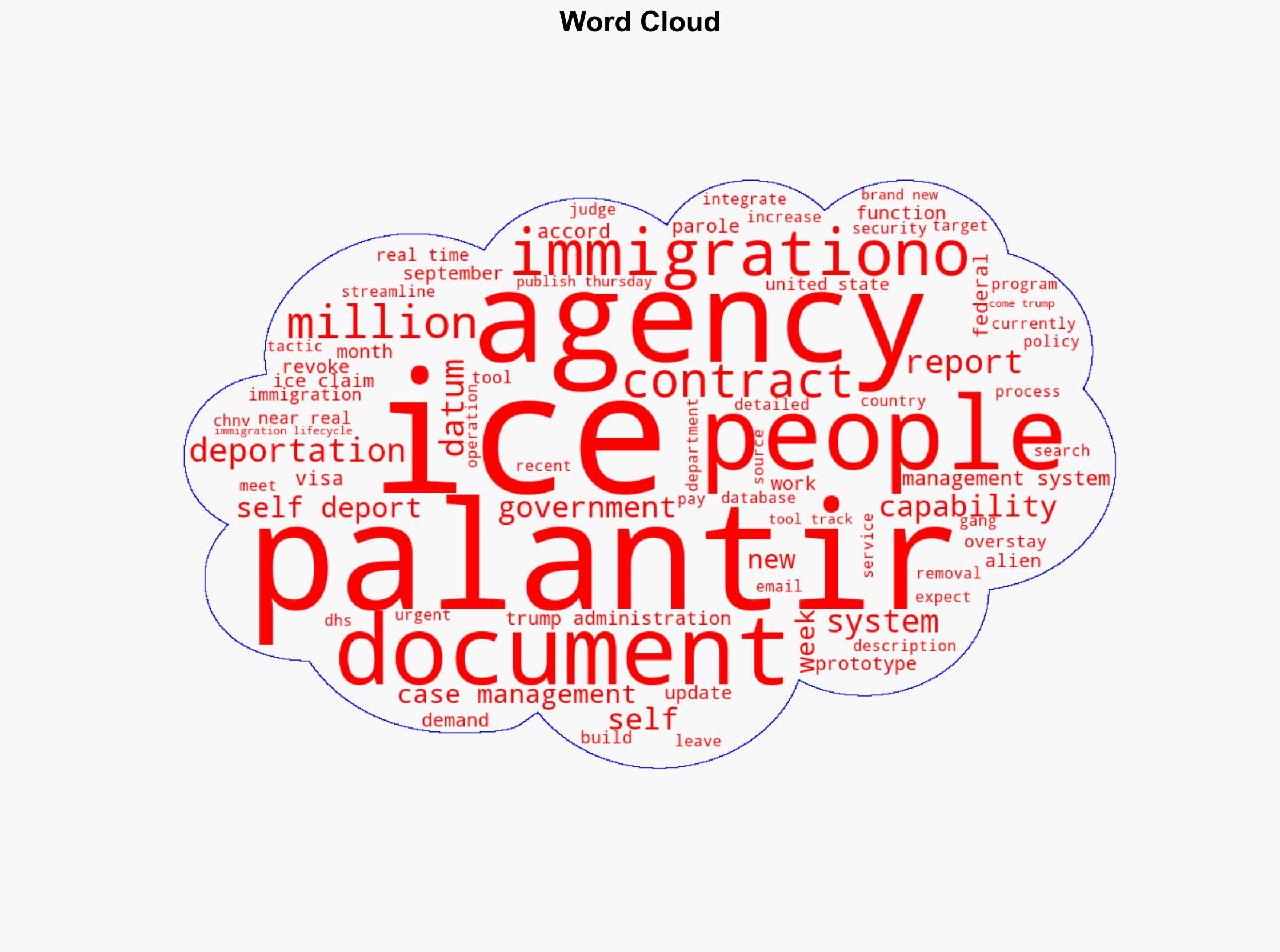ICE Is Paying Palantir 30 Million to Build ‘ImmigrationOS’ Surveillance System – Slashdot.org
Published on: 2025-04-20
Intelligence Report: ICE Is Paying Palantir 30 Million to Build ‘ImmigrationOS’ Surveillance System – Slashdot.org
1. BLUF (Bottom Line Up Front)
The Immigration and Customs Enforcement (ICE) agency is investing $30 million in collaboration with Palantir to develop a new surveillance system called ‘ImmigrationOS’. This system aims to enhance ICE’s ability to track and prioritize deportations, particularly focusing on visa overstays and self-deportations. The strategic goal is to streamline deportation logistics and improve enforcement prioritization. Recommendations include monitoring the system’s development for compliance with privacy and human rights standards.
2. Detailed Analysis
The following structured analytic techniques have been applied:
SWOT Analysis
Strengths: Enhanced real-time tracking capabilities; improved prioritization of deportation targets.
Weaknesses: Potential privacy concerns; reliance on self-reported data.
Opportunities: Improved efficiency in deportation processes; potential expansion to other enforcement areas.
Threats: Legal challenges; public backlash over privacy and human rights implications.
Cross-Impact Matrix
The implementation of ImmigrationOS may influence neighboring regions by potentially increasing cross-border tensions and impacting diplomatic relations with countries of origin for deportees. Additionally, it may set a precedent for other countries considering similar systems.
Scenario Generation
Scenario 1: Successful implementation leads to streamlined deportation processes, reducing illegal immigration rates.
Scenario 2: Legal and public challenges delay or halt the system’s deployment, impacting ICE’s operational efficiency.
Scenario 3: Expansion of the system’s capabilities to other areas of law enforcement, increasing its scope and impact.
3. Implications and Strategic Risks
The deployment of ImmigrationOS poses significant implications for privacy and civil liberties, potentially leading to increased scrutiny and legal challenges. The system’s reliance on self-reported data may also limit its effectiveness. Strategically, the system could enhance ICE’s operational capabilities but may also exacerbate tensions with immigrant communities and international partners.
4. Recommendations and Outlook
- Conduct regular audits to ensure compliance with privacy and human rights standards.
- Engage with stakeholders, including immigrant advocacy groups, to address concerns and improve transparency.
- Develop contingency plans for potential legal challenges and public opposition.
- Scenario-based projection: If successful, consider expanding the system’s capabilities to enhance other areas of law enforcement.
5. Key Individuals and Entities
Palantir, Immigration and Customs Enforcement (ICE), Department of Homeland Security, Customs and Border Protection.




